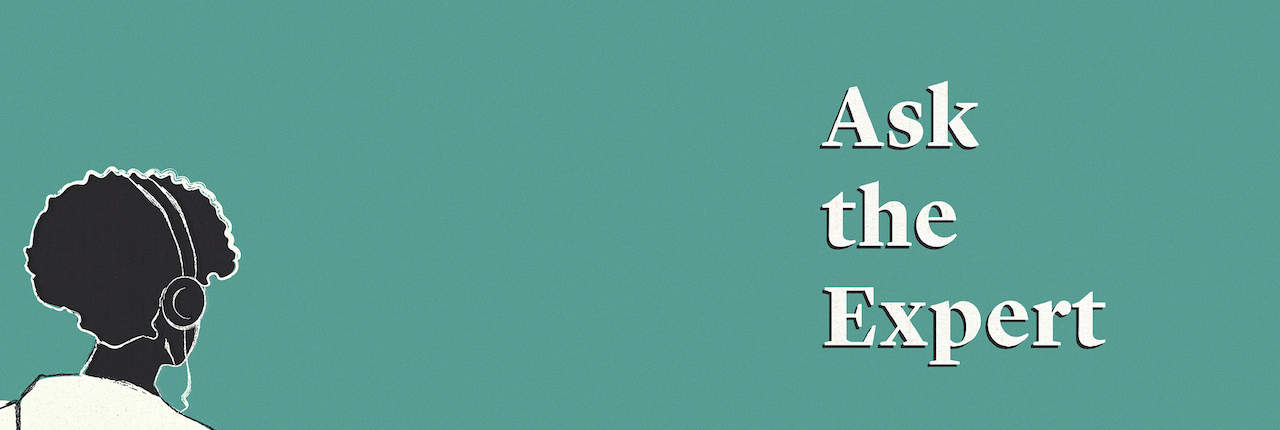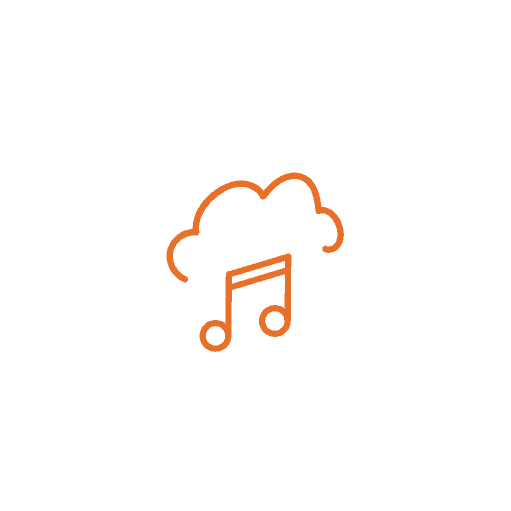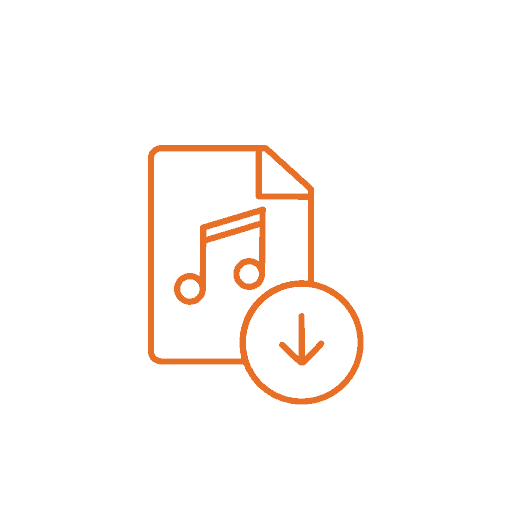A Conversation about Grief and Loss with Lisa McDaniel
January 19, 2024
The “Community Spotlight” edition of the “Ask the Expert” podcast series shares the stories of our community members. This episode is part of a special series on grief and loss. Lisa McDaniel joined Krissy Dilger of SRNA to share about her family’s experience with neuromyelitis optica spectrum disorder (NMOSD).
Transcript
[00:00:03] Krissy Dilger: Hello and welcome to the SRNA “Ask the Expert” podcast series, “Community Spotlight Edition.” This episode is part of a special series on grief and loss. My name is Krissy Dilger, and I moderated this podcast. SRNA is a nonprofit focused on support, education, and research of rare neuroimmune disorders. You can learn more about us on our website at wearesrna.org.
[00:00:30] Our 2023 “Ask the Expert” podcast series is sponsored in part by Amgen, Alexion, AstraZeneca Rare Disease, and UCB. For this podcast, we are pleased to be joined by Lisa McDaniel. You can view her bio in the podcast description. So, welcome, Lisa, and thank you for joining me today, and also thank you for sharing your story. To start us off, can you just tell us a little bit about yourself, your family, and how you came to learn about rare neuroimmune disorders?
[00:01:05] Lisa McDaniel: Sure. Thank you very much for having me. I really appreciate the opportunity to share my story. Of course, we all like talking about our children. So, I’m happy to share that journey. My name is Lisa McDaniel, and I’m the director of patient advocacy for the Guthy-Jackson Charitable Foundation. We do research on a rare disease that my son had called neuromyelitis optica.
[00:01:26] I’ve been happily with my husband of thirty-three years now. We have three children: Two grown women who have blessed us with three grandchildren, and then one son who is no longer here on Earth with us. How I came about learning about rare neuroimmune disorders is, our son, who–his name is Colin–when he was about four and a half, he just woke up one morning and was blind in both eyes.
[00:01:59] Now, it took us a little while to realize that he couldn’t see because he was a prankster. He liked playing jokes on us. And we noticed that that morning when he got up, when he would reach for his cup, he would reach beside his cup, like he couldn’t get his cup. And at first, I just laughed it off thinking, you know, he’s a jokester, he’s playing jokes on us, right?
[00:02:20] But then we realized that he couldn’t tell the difference between me and my oldest daughter and realized there was an issue. Long story short, from there we knew something was wrong, took him to get help. We went through a diagnosis process, which I think we’re going to talk about here in a minute. But that’s how I kind of got involved in rare disease–was from the onset of Colin’s first issue.
[00:02:48] Krissy Dilger: Got it. And so, you mentioned your son just woke up and couldn’t see. Can you talk a little bit more about the diagnosis journey from there? What other symptoms he might have experienced, how he was, you know, treated when I’m assuming you went to the hospital or what happened from there, I guess?
[00:03:12] Lisa McDaniel: Well, because he couldn’t see, it was a weekend and I remember not really knowing for sure what to do, just knowing that he couldn’t see. So, obviously I’m thinking we need to get him to an eye doctor. So, we lived in a very small, small south Georgia town. Everybody knows one another in that town, and I actually called my sister who was married to the local eye doctor’s nurse.
[00:03:37] And I called her and told her what was happening. She immediately called her mother-in-law who immediately called me, and we got calling up to see the eye doctor very quickly. And I remember them looking in his eyes and looking at us and saying he needs to go somewhere else, to a major hospital. Can you take him to Savannah? Which was like two hours from us. Can you take him to Savannah? We were like, yes, we’ll do whatever we need.
[00:04:01] Well, long story short. In the beginning we were told that he could possibly have a brain tumor. We were told that he could have multiple sclerosis after that. He went through lots of MRIs. They started him on high dose steroids through the IV. He was hospitalized for a few days, came home on IV antibiotics. His vision improved somewhat after that. But within a few weeks, we noticed that he was having trouble walking. He was stumbling; he was falling a lot. His hand coordination was not there. He started vomiting.
[00:04:35] He hiccupped a lot, which, hiccups sound weird, but in this neuroimmune condition, hiccups can actually be a sign of a relapse. We ended up–I’m a detail-oriented person. That’s my coping mechanism. So, I started researching, trying to find anything I could to try to figure out what was going on. We decided we needed a second opinion.
[00:04:58] And finally we were turned towards Birmingham, Alabama to a doctor there who specializes in pediatric demyelinating disease. We called her and took him over there as soon as she could see him. She kept him for a few days, did some blood tests, and she came to us, and in our world at that point, we thought the worst possible thing we could hear was, “He has multiple sclerosis.”
[00:05:25] And she came to us, and I remember sitting in that office, and she looked at us, and she said, “Well, he doesn’t have MS.” And I remember thinking, “Fantastic, he doesn’t have MS. Great,” but then looking at her face, realizing her face did not look excited about that. And so, she told us that he had neuromyelitis optica. Of course, I had never heard of it at that point. I think most people had not and still have not.
[00:05:54] And the first thing she told me was, “Don’t Google this. You’re going to get a lot of misinformation if you do.” And I looked at her, and I said, “Doctor Ness, you don’t know me, and I don’t really know you, but one thing you need to know is that I’m very detail-oriented. If you don’t want me to Google, then you need to put information in my hand that I can read, otherwise I’m going to Google,” which I did end up doing, but she did give us information.
[00:06:13] And from that moment, as with anybody else who gets a diagnosis, it’s very life-changing. Our whole family’s life was turned upside down and changed at that point.
[00:06:29] Krissy Dilger: Yeah, I can only imagine what your family was thinking when you got that diagnosis and it not being anything you’d ever heard of before, just an uncomfortable feeling, for sure. So, after you received the diagnosis, what happened next? Did he receive treatments? What was the timeline after that?
[00:07:00] Lisa McDaniel: So, she was going to start him on some medications, which, of course, ended up–as with many rare diseases–being a battle with insurance. We fought insurance for treatments for him. He did end up having plasmapheresis, which is kind of, it’s almost like dialysis, but they go in and kind of clean the blood of the antibody that’s causing the issue. So, he had that, which greatly helped him.
[00:07:23] He went through, at the time, every treatment available for NMO. At the time, there were no FDA-approved treatments. So, everything was used off-label. So, he went through all of those off-label treatments. None of those really helped him. He just continued to relapse, after relapse, after relapse, and for every relapse, his body continued to deteriorate and decline.
[00:07:49] We watched him go from a healthy, happy, normal four-and-a-half-year-old to a child who could not see very well, who can no longer play the video games that he loved so much, that had issues walking. He couldn’t function like any other child. He was not able to go to school. His life completely changed.
[00:08:14] And I think I’m jumping ahead here a little bit, but, in trying to cope with that diagnosis, our family, of course, was kind of thrown into this dark space where we didn’t know how to handle those things or what to do with those things and, looking back on that and knowing what I know now, I can see where our family went through this grieving period. And I think that’s normal in diagnosis.
[00:08:40] You grieve for the life that you thought that child was going to have, the life that you thought your family was going to have, because it does change. In our case literally overnight, it changed. We were no longer able to attend every function for our girls as we had before. We were not at their band concerts, their cheerleading practices before, because we were pouring so much time into making sure Colin was at his doctors, that he had his treatments, that he was comfortable, that he wasn’t in pain.
[00:09:11] And I think for families to suddenly be–to make that shift in life, it is its own grieving process, which, you know, affects every one of us differently. As I said before, my coping mechanism in that is details. If I read and study and know all the details, my brain helps me cope better. If it’s unknown for me, it’s very hard for me to deal with that. Most people are not like that, some are. Some people grieve, and they take that time where they cry and they have tears and they, why me? Why is it that way? And that’s okay to do that.
[00:09:49] I think my family experienced every gamut of grief in trying to learn how to cope with that diagnosis and that grief, and each person in my family had to come to their own realization of what that meant for them and how their lives changed and how to move from that grief part into still trying to be a functional family and live the life that we had to live.
[00:10:16] Krissy Dilger: I think that’s such an important part that maybe people don’t realize when thinking about a diagnosis like this is that grief that you mentioned about the life changing and being different than you thought it would be because it can be really hard to cope with. And maybe people don’t realize that that’s such a big part of a diagnosis. It’s not just the diagnosis itself. So, you mentioned your son had been going through many relapses, the treatments didn’t seem to really be preventing that. Do you feel comfortable talking about what happened next?
[00:11:03] Lisa McDaniel: Sure. Once we realized how serious Colin’s condition was, we had been driving from our small south Georgia town all the way to Birmingham, which was about six and a half hours, and those trips were extremely hard on Colin. We realized that in order to continue receiving the best care for him, our family would need to pack up and move. So, we did much against, you know, especially our oldest daughter’s wishes; she was a teenager at the time.
[00:11:32] It was really hard for her to pack up, leave her friends behind, and go to another state. But she did, we all did, and we did that to try and help him as much as we could as a family. We were there for about three years. In those three years, they did everything they could to help Colin. We even–our family reached out to the Guthy-Jackson Charitable Foundation, which did not exist when Colin was first diagnosed, but came about after he was diagnosed.
[00:12:01] And I got heavily involved with Guthy-Jackson, going to their patient days, contacting the doctors that they had, trying to figure out what we could do to help him. And some of the most brilliant minds in the world had input in his care. Dr. Ness in Birmingham was really great about listening to that input and learning from Colin and from the other doctors.
[00:12:24] There came a time in 2011–the end of 2011–where we realized after a long conversation with his doctor that what we were doing just was not working. And she approached us then about hospice care for him. At the time, he was in a lot of pain. He could barely see, he couldn’t hardly communicate, he had trouble swallowing, he could not eat. He had no real quality of life.
[00:12:53] And what we were doing was just continuing to prolong that by putting him through treatment after treatment. That just was not working. So, we put him in hospice care in December, and it ended up being one of the best things we could have done for him because they were able to manage his pain better. He didn’t have trips back and forth to the hospitals. He was able to be home and just interact with his family to the best of his ability.
[00:13:19] Our family and friends were able to come in and be with us and be with him and spend that quality time with him. March 29th of 2012, when Colin was nine years old, he passed away. And yes, that was a very hard, difficult, dark time for our family. But at the same time, there was also a little bit of relief in knowing that he no longer had to live in pain, and he no longer had to continue to fight when he really had nothing left to fight with. So, that, of course, began a whole new journey for us and a whole different type of grief process than the diagnostic journey was.
[00:14:09] Krissy Dilger: I just want to say, I’m so sorry for your loss, but I can really only say how strong you are for being able to tell this story and help others through sharing it. So, thank you for that. So, obviously, you mentioned it’s a different coping process after the loss of a loved one to the diagnosis versus the diagnosis itself. Do you feel comfortable sharing about how you coped with the diagnosis in the early days and then kind of where you’re at now with, you know, how you cope with anniversaries and maybe other dates that have been significant in Colin or your life?
[00:15:01] Lisa McDaniel: You know, going back to that moment that we were all in his room and he actually passed, I think up until that moment, I had so much hope that something was still going to save him. Something was going to come through and work out to help him. And the moment that he passed away, I turned from that detail-oriented person who was just doing everything possible to cope with the situation and to cope with that diagnosis and turned into this person who suddenly became angry and depressed.
[00:15:40] And all that is part of the stages of grief, of course, but to watch your child his whole life change and watch him continually deteriorate regardless of what we did to help him over five years’ time was horrific. And to finally watch him have relief from that, though I was glad he was no longer suffering, my heart was ripped apart. My family’s heart was ripped apart.
[00:16:11] So, that grief process was something that, you know, we all really struggled with and were torn for the reasons I’ve already mentioned because we were relieved for him but heartbroken for us and for knowing we’d never see him here on this Earth again. I think the stages of grief, there’s denial and anger and bargaining and depression and acceptance. I did a lot of that bargaining, I think, in my mind before he passed away. I don’t remember going through the bargaining stage afterwards. I remember doing all that before.
[00:16:48] “Okay, God, if you can save him and make him better, then I’m going to do this. I’m going to fight, I’m going to help this community, but I need you to do this.” So, that bargaining was prior to his death for me. But after he passed away, that anger and depression really set in for me and for my girls, for my husband, for our extended family. I went through a stage of not understanding why children are allowed to suffer and die in such harsh ways.
[00:17:22] I remember just being very angry with–and religion had always been very important to me. But at that moment in time, I was so angry with God that it was hard to work through that anger and that depression. Shortly after Colin died–well, it was actually a few months after–I planned to go to an NMO patient day that Guthy-Jackson holds every year.
[00:17:54] And my intention on going that year was to tell that community goodbye and to have my last moment there to thank them for their support because they were highly supportive of my family and of Colin. They considered him their “little mascot”–is what a lot of them called him. So, my intentions were to go there and tell everyone goodbye as part of my grief process to let that part go. And I went there, and of course, it was very emotional; everyone was very supportive.
[00:18:22] But after it was over, I was talking to one of the members of the board of Directors of Guthy-Jackson. And she said to me, “You know what, I think we have a job for you when you’re ready.” So, I looked at her, and I said, “Are you sure?” She’s like, “Yeah, I think you’d be great.” And I said, “Okay, well, then let’s talk.” Well, long story short, that helped me tremendously to be able to go through my grief process because I was then able to help other patients and advocate for people in our own community that I had grown very close to.
[00:18:57] And I think had I not had that handed to me–and I was thankful to have that part come in so I could pick up and have a goal and a focus to take my focus away from that anger and that depression and all that. I still was grieving, but I had a focus and a purpose that I felt like I didn’t have after Colin passed away. Yes, I had two other children, and I was their mom and poured my heart and soul into that. But I still needed something, and I think had that not come around for me, I would be in a very different place than I am now.
[00:19:34] So, that was a big part of my grief journey–was the ability to pour into other people and help other people. And people say that’s strong–I don’t call that strong at all. Honestly, part of that is selfish on my part because I was able to pour into other people and help other people. It really truly helped me as I was helping other people, and had I not been able to do that, like I said, my journey today would be a lot different, not only for me, but for my family because I don’t think I would have been able to get to a place for a really long time where I could look positively at the outcome.
[00:20:00] Not that it’s positive that he passed away. I will never be happy or satisfied with that, but he still touches people today. His name still lives on, and I take everything I learned, and I am able to pour that into other people.
[00:20:31] Thanks to being given the opportunity to come into this community and be an advocate for it. That helped me, that helped my family to cope and learn that we will never forget him. He’s always a part of our life, but it helped us to move forward in the way that we knew that his name could live on as something good. Not only in our lives, but in the lives of people around the world that we’ve heard from that maybe never met him, but they heard about his story somewhere.
[00:21:01] They followed his CaringBridge journey that we documented, and hearing how much he helped those people by his life certainly helps us. As far as anniversaries and those holidays, of course, those things are still difficult even now eleven years later. But we’ve learned to incorporate little pieces of him into our lives, and we will never forget him. He’s always a part of us.
[00:21:32] So, maybe at Christmastime, we get some toys that we knew he loved, and we donate them to other families. We donate them particularly to NMO families and people who have rare disease families because it is a struggle financially when you have a chronically ill person in your household. So, we like to remember those anniversaries by doing those little deeds that we know he would love because he was a giving, sharing, caring, joyful person, and we try to continue that.
[00:22:01] We also buy little ornaments for his Christmas tree that we add to our tree every year. And the biggest thing, one of the biggest things we do is during hospice care Colin told us one day that… I mean, Colin knew that he was going to die. That’s the bottom line. He knew it even at nine years old, he didn’t understand everything as far as, which, we don’t know why. But he didn’t understand exactly what that process would be like, but he knew in his own mind that things were the way they were, and he asked us things.
[00:22:36] We were always honest with him as far as a nine-year-old could understand. But he told us all one day that because he couldn’t eat, he said, “I’m going to be able to eat one day.” And he said, “I know when I get to heaven that Jesus has me some blue birthday cake up there, and I’m going to eat blue birthday cake.” So, we’ve continued, kind of, that thing that he started and put in our minds.
[00:23:01] So, every year on the anniversary of his death and on his birthday, we have either blue cupcakes or a blue cake to just kind of remind us of that joyful person he was and how even in his darkest time, he looked for something good in that, and he found it, and that has helped our family carry through.
[00:23:22] Krissy Dilger: Wow, I’m feeling emotional, too, just hearing you talk about it. He seems really special and we’re hoping he’s eating that blue birthday cake up there. So, you talked about how you and your family coped, and it sounds like you’ve really invested yourself into this community, and I just think that’s awesome. What would you like to share with others who might be going through something similar that you and your family went through with Colin?
[00:24:02] Lisa McDaniel: Well, first off, I want to say that whatever anyone out there may be feeling in this grief journey, whether it’s grief with diagnosis or whether it’s grief from loss, whatever you’re feeling, it’s okay. That’s very important to know your feelings are valid, and no one can tell you how to feel. No one can tell you how long that lasts. No one can tell you you should be over it. You grieve in your own way. We all do. And however long that takes, it’s okay. Even now, eleven years later, our family still grieves. It’s just in a different way. That pain is there. That “missing him” part is there.
[00:24:41] It’s not as intense as what it was in those first days. It changes, and that’s what I can tell you. I can guarantee you that that pain stays, but it changes, and it gets where you can bear it somehow. I don’t have an explanation for it. But learning to put yourself into something that can help take that pain and turn it into something positive or something good is the way our family dealt with it and got through it. And that’s not the way everyone does but however you do it, as long as it’s not harmful to you or other people, that’s okay. Whatever you’re feeling, that’s okay. Don’t let anyone tell you otherwise.
[00:25:23] Krissy Dilger: Thank you so much for sharing your story and your experience. I know that I’ve learned something from this conversation. I’m sure anyone who listens will feel the same. So, thank you for doing so, and I hope that we can continue to talk or have these conversations because I think they’re important.
[00:25:49] Lisa McDaniel: They are important. And I really appreciate the opportunity to share my story but share Colin’s story and continue to put his name out there and continue his legacy, and I just thank you for that.
[00:26:00] Krissy Dilger: Of course. Thank you to our 2023 “Ask the Expert” podcast sponsors Amgen, Alexion, AstraZeneca Rare Disease, and UCB. Amgen is focused on the discovery, development, and commercialization of medicines that address critical needs for people impacted by rare, autoimmune, and severe inflammatory diseases. They apply scientific expertise and courage to bring clinically meaningful therapies to patients. Amgen believes science and compassion must work together to transform lives.
[00:26:41] Alexion, AstraZeneca Rare Disease is a global bio-pharmaceutical company focused on serving patients with severe and rare disorders through the innovation, development, and commercialization of life-transforming therapeutic products. Their goal is to deliver medical breakthroughs where none currently exist, and they are committed to ensuring that patient perspective and community engagement are always at the forefront of their work.
[00:27:09] UCB innovates and delivers solutions that make real improvements for people living with severe diseases. They partner with and listen to patients, caregivers, and stakeholders across the health care system to identify promising innovations that create valuable health solutions.
LISTEN & SUBSCRIBE
TO PODCAST
DOWNLOAD MP3
DOWNLOAD TRANSCRIPT












